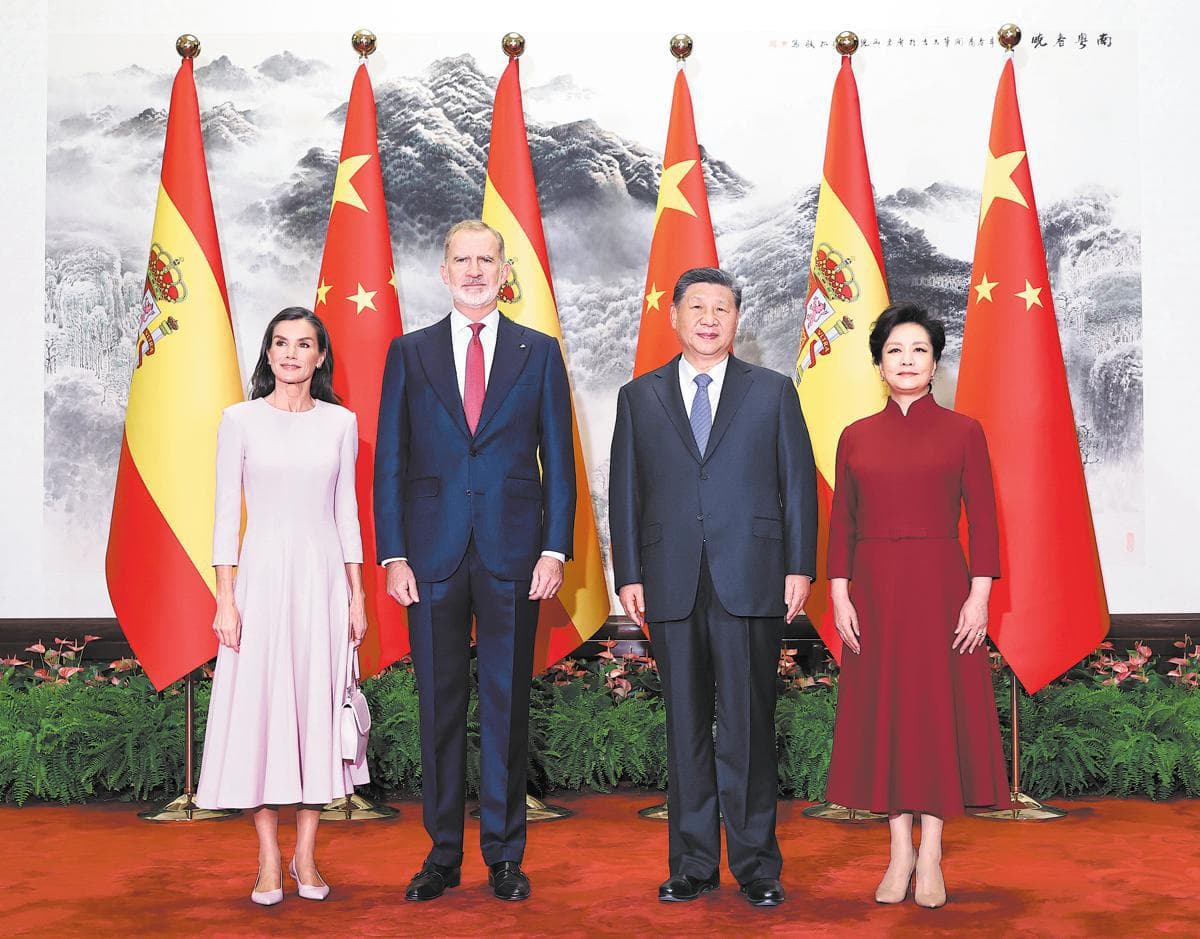We're loading the full news article for you. This includes the article content, images, author information, and related articles.
The strategic alignment between Beijing and Madrid could reshape EU-China dynamics, creating potential economic and diplomatic shifts for key African partners like Kenya, which navigates complex trade and investment relationships with both powers.

BEIJING, China – Chinese President Xi Jinping and Spain’s King Felipe VI agreed on Wednesday, November 13, 2025, to elevate their nations’ comprehensive strategic partnership, a move with potential ripple effects for Kenya and the broader East Africa region. The high-level meeting in Beijing, the first state visit by a Spanish monarch in 18 years, signals a deepening of ties between China and a key European Union member state amid a volatile global landscape.
President Xi stated that China is ready to forge a partnership with “greater strategic determination, dynamism and global influence,” according to official readouts. The visit, which follows three trips to China in three years by Spanish Prime Minister Pedro Sánchez, marks the 20th anniversary of the China-Spain comprehensive strategic partnership and concluded with the signing of 10 cooperation agreements in areas including trade, technology, and education.
While the discussions focused on bilateral interests, the strategic convergence of a major EU economy and East Africa's largest economic partner warrants close attention from Nairobi. The development unfolds against a backdrop of complex geopolitical and trade relations that directly impact Kenya's economy.
The strengthened Sino-Spanish relationship could influence investment and trade flows into Kenya. China remains Kenya's foremost bilateral partner and creditor, financing major infrastructure projects like the Standard Gauge Railway (SGR) and the Nairobi Expressway. In June 2025, Kenya secured a financial package worth approximately $1 billion from China for further infrastructure development, including the extension of the SGR to the Ugandan border. According to the Kenya National Bureau of Statistics, China was the leading source of imports in March 2024, valued at KSh 36.0 billion. However, this relationship is heavily skewed; in September 2025, Kenya's imports from China stood at $819 million against exports of only $16.9 million, creating a significant trade imbalance.
Spain, meanwhile, is a steady, if smaller, economic partner. According to the UN COMTRADE database, Kenyan exports to Spain were valued at US$78.15 million in 2024, while imports from Spain were US$71.35 million. Data from the Observatory of Economic Complexity shows that in July 2025, Kenya exported €9.16M to Spain, with top products including tropical fruits and vegetable oils. A closer relationship between Madrid and Beijing could see Spanish firms, particularly in renewable energy and infrastructure, potentially partnering with Chinese state-owned enterprises to pursue projects in third-party markets, a possibility explicitly raised by President Xi.
Spain's deepening engagement with China could also influence the broader EU-Africa strategy. The EU remains Africa's largest trade and investment partner, with total exports to the continent reaching $187 billion in 2022, compared to China's $164 billion. However, China has successfully positioned itself as a major alternative partner, particularly in large-scale infrastructure. African nations have often expressed a preference for pursuing diverse partnerships, avoiding taking sides in geopolitical rivalries.
Spain has been actively cultivating its relationship with Africa, launching its "Africa Strategy 2025-2028" to boost investment and diplomatic ties. A more coordinated Sino-Spanish approach could alter the competitive landscape for development finance and infrastructure contracts in East Africa. Analysts suggest that increased competition between China and the EU for influence in Africa has, in some cases, reignited European interest and engagement on the continent. For Kenya, this could translate into more diverse financing options but also requires careful navigation of competing interests and standards.
The meeting in Beijing occurs as both China and the EU navigate trade frictions and a complex international environment. Spain has adopted a less adversarial stance toward China compared to some other Western nations and has advocated for balanced EU-China relations. Prime Minister Sánchez has previously stated that "trade wars are not good, nobody wins."
King Felipe VI's visit underscores a long-term strategic vision from Madrid to engage with the world's second-largest economy. For Kenya, a key player in the East African Community and a nation balancing significant debt obligations with ambitious development goals, the evolving relationship between its major partners in Europe and Asia is of critical importance. How this enhanced China-Spain partnership translates into concrete action on the African continent will be closely monitored by policymakers in Nairobi and across the region.
Keep the conversation in one place—threads here stay linked to the story and in the forums.
Sign in to start a discussion
Start a conversation about this story and keep it linked here.
Other hot threads
E-sports and Gaming Community in Kenya
Active 9 months ago
The Role of Technology in Modern Agriculture (AgriTech)
Active 9 months ago
Popular Recreational Activities Across Counties
Active 9 months ago
Investing in Youth Sports Development Programs
Active 9 months ago